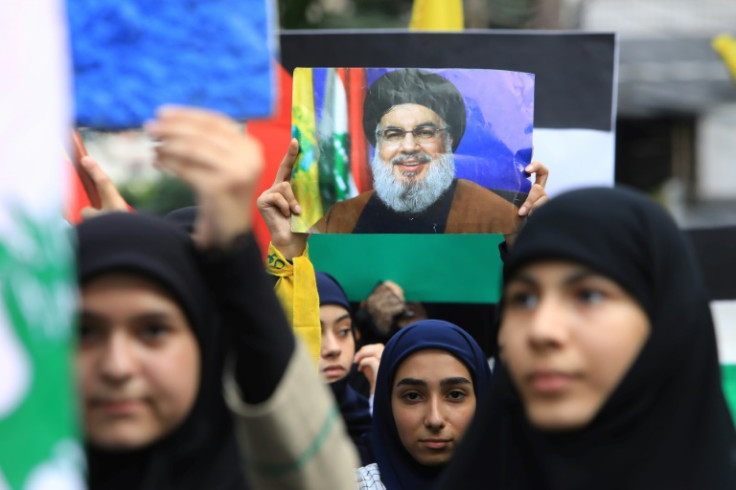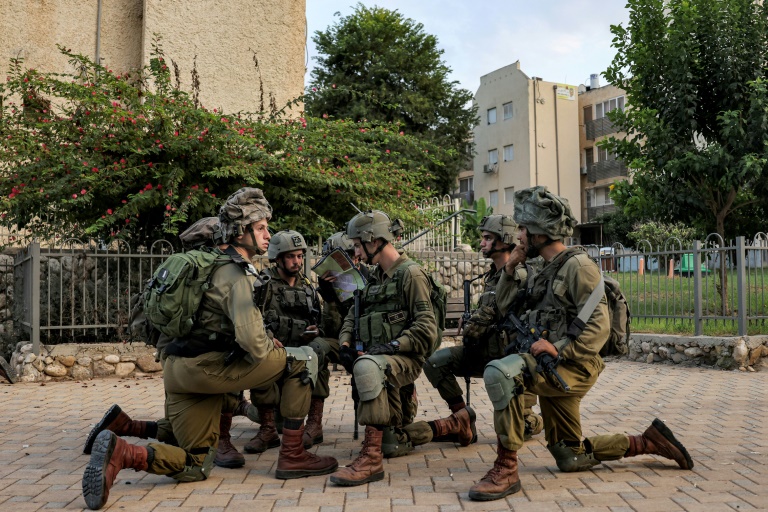Israel on paper enjoys vast numerical superiority over Palestinian militant group Hamas in terms of forces and hardware but the numbers mask a picture that is far more troubling for the Israeli government, analysts say.
Israeli Prime Minister Benjamin Netanyahu has already warned his country of a “long and difficult” war to come after Hamas’s assault against Israel killed hundreds of Israelis and prompted retaliatory bombings of the Gaza Strip that have killed hundreds of Palestinians.
Resourceful and tactically adept, Hamas considers itself to be a master of asymmetric warfare, where a smaller force can outsmart a numerically stronger opponent, something that could pose huge problems for Israel if it launches a ground offensive within Gaza.
Meanwhile, a key question remains whether Hamas’s ally the pro-Tehran Shiite Lebanese group Hezbollah will itself join the conflict and create a new northern front for Israel.
According to the International Institute for Strategic Studies (IISS), the Israeli armed forces number 169,500 people, including 126,000 in the land army, with 400,000 reservists also on call, as opposed to 15,000 to 20,000 for Hamas’s al-Qassem brigades.
The Israeli army has already said it has mobilised 300,000 reservists, something never done before in such a short period of time.
It is also one of the best-equipped armies in the world. A nuclear power — albeit undeclared — Israel has aviation, armoured vehicles, tanks, artillery as well as its powerful Iron Dome anti-missile defence system.
“Israel enjoys a significant military and technological advantage over Hamas and aligned groups,” said Lucas Webber, co-founder of the Militant Wire analysis site.
“However, any offensive operations are likely to be costly as it would be entering a hostile environment that is one of the most densely populated areas on earth.”
For a Western arms expert, who anonymously posts on X (formerly Twitter) under the handle Calibre Obscura, Hamas has an “arsenal of stocks it had built up for decades” that has been created and financed with help from Iran and Syria.
Its heavy weapons come from Iran, Syria, Libya and other Middle Eastern countries while handguns and assault rifles stem from China, ex-Soviet bloc countries or even Israeli stocks seized in fighting.
The majority of its rockets are locally manufactured and technologically rudimentary and it can also boast of drones, mines, IEDs and other armaments capable of causing major destruction.
“Though outmatched, in recent years Hamas has markedly expanded its weapons arsenal and improved its combat effectiveness,” said Webber.
“The organisation has amassed a notable amount of rockets and developed its short and medium range fire capabilities.”
Hezbollah has not entered the conflict but it said three of its members were killed Monday in Israeli strikes, adding it hit back by striking two Israeli barracks.
After its 2006 war against Israel, Hezbollah “began to rearrange its cards and gradually develop and upgrade its military capabilities,” said Eva Koulouriotis, an independent analyst specialising in the Middle East.
She said Hezbollah had up to 200,000 missiles of all ranges — including Katyusha, Grad and Shahab — as well as anti-aircraft batteries and a range of drones, including Iranian-made Shahid-136s used by Russia in Ukraine and Muhajir-4s.
“The most important question is how many of them has precision guidance but it should be quite substantial,” said IISS analyst Fabian Hinz.
Hezbollah is now “much larger, better funded, more professionally trained and battle-tested, well equipped and armed, and militarily capable than Hamas,” said Webber. In 2021, the group claimed to have 100,000 fighters.
By contrast it is highly unlikely that Israel’s allies could be drawn directly into the conflict, with the US making clear it has no intention to send in troops although Washington had deployed to the eastern Mediterranean the USS Gerald Ford aircraft carrier.
A multi-front war involving Hamas in Gaza and Hezbollah in Lebanon, not to mention other Palestinian groups in the West Bank or even the Syrian regime would be the nightmare scenario for Israel.
“Whatever level of coordination there has been to date between Hezbollah and Hamas, the potential for the two groups to work together is very real,” said the International Crisis Group.
Unlike the last time Israel was caught by a surprise attack — the 1973 Yom Kippur war — there is no existential threat to Israel.
But the nature of terrain in Gaza, where Hamas has a labyrinth of underground tunnels, could be perilous.
“In the language of numbers, there is a clear Israeli superiority, and with Washington’s military support, it may seem that we are facing a war with a certain outcome before it starts,” said Koulouriotis.
“However, the other side can exploit the ground advantage.”
AFP

AFP







